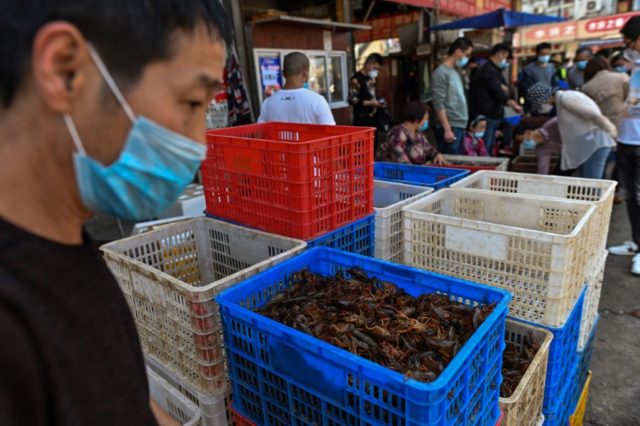The World Health Organization (W.H.O.) on Tuesday recommended a ban on the sale of live wild animals at food markets.
The W.H.O.’s report on the origins of the coronavirus in Wuhan, China, classified transmission from wild animals to humans as the most likely scenario, and suspicion has long focused on food markets that sell wildlife as the location where humans were infected.
“Suspend the trade in live caught wild animals of mammalian species for food or breeding purposes and close sections of food markets selling live caught wild animals of mammalian species as an emergency measure unless demonstrable effective regulations and adequate risk assessment are in place,” W.H.O. advised in a statement with the World Organization for Animal Health and U.N. Environment Program.
The W.H.O. accompanied this recommendation with a report that said animals, and “particularly wild animals,” are the source of over 70 percent of emerging infectious diseases, including novel viruses like the Chinese coronavirus.
“When wild animals are kept in cages or pens, slaughtered and dressed in open market areas, these areas become contaminated with body fluids, feces and other waste, increasing the risk of transmission of pathogens to workers and customers and potentially resulting in spillover of pathogens to other animals in the market,” W.H.O. explained.
Calls for a shutdown of wildlife markets like the one in Wuhan stretch back to the early days of the pandemic, such as a recommendation from the U.N. Convention on Biological Diversity in April 2020 that was nearly identical to the W.H.O. statement in April 2021. The Chinese government has intermittently gestured toward shutting down the wildlife trade, but various exceptions and loopholes allow it to continue.
China’s state-run Global Times said Tuesday that the most notorious of food markets, the Huanan Seafood Market in Wuhan, has been “sealed off for more than a year” and might be demolished soon, although local officials denied reports that a demolition plan has been approved:
Several former vendors gathered at the corner of the closed market to discuss rumors they heard about plans to demolish the market. One former seafood vendor at the market, who requested anonymity, told the Global Times that the management team of the market asked former merchants who still had tricycles in the closed market to register their personal information on April 8, and speculation about the market’s demolition has since been circulating.
A former vendor surnamed Ming who moved his vegetable business to a market about 16 kilometers from the Huanan market told the Global Times, without providing specifics, that he heard the site of the market would be turned into a park to commemorate medical staff who sacrificed their lives in the battle against COVID-19.
Some spectacle shop vendors on the second floor of the market said they also heard that it would be renovated but would not sell any seafood.
The W.H.O. acknowledged that closing “traditional markets” could make it more difficult for some areas to provide “food and livelihood for large populations.” Studies of the wildlife trade have cautioned that in China it plays a major role in poverty alleviation – it is easy for low-income rural Chinese to start profitable ventures to provide wildlife delicacies for urban consumers – while in more impoverished countries, banning the trade could jeopardize food security.
Skeptical readers of the W.H.O.’s report on Wuhan – including scientists and U.S. government officials – have noted the scarcity of evidence for the ostensibly most likely scenario of coronavirus transmission from a source animal, such as bats, to humans through a third species that might have been sold at wildlife markets. The search for both the source animal and intermediate species is ongoing.

COMMENTS
Please let us know if you're having issues with commenting.